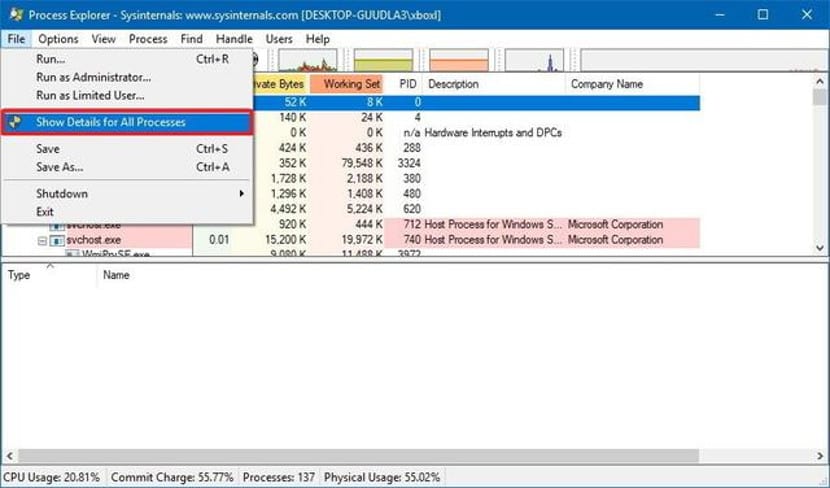
Surely more than one Windows 10 user has wanted to delete a file and could not because a Windows 10 message says that one or more system processes are using the file. It is something annoying and annoying, especially if we have to delete many files. To solve this, there are many tricks and methods but we are going to tell you one that has the approval of Microsoft itself, with a free tool from Microsoft. This free tool is called ProcessExplorer and we can get it through Microsoft's website. Once we have downloaded this package, we unzip it and run the exe file corresponding to our platform. If we have the 64-bit version of Windows 10 we have to select procexp64.exe and if we do not have that version, we have to use the file procexp.exe. After executing the tool, the following window will appear:

Now we go to "File–> Show Details for All Processes", which will show us all the processes that are taking place in the operating system. Now we go to «Find–> Find handle or DLL». A small window will appear where we can insert the file that we want to delete.
A list of processes that are using that file will appear. We right click on the process and choose the option "unlock file". Now, We go to the file explorer where that file that we wanted to delete was and we delete it without any problem.. It may be that the file is being used by several processes, in that case, we have to unblock the processes that are using the file one by one. Then we can delete the locked file.
If we have many files locked, an alternative to this method would be to restart Windows 10 and after startup begin to delete files that are not locked. If the locked files that we want to delete are due to various programs that use them, restarting the computer can quickly unlock many processes.